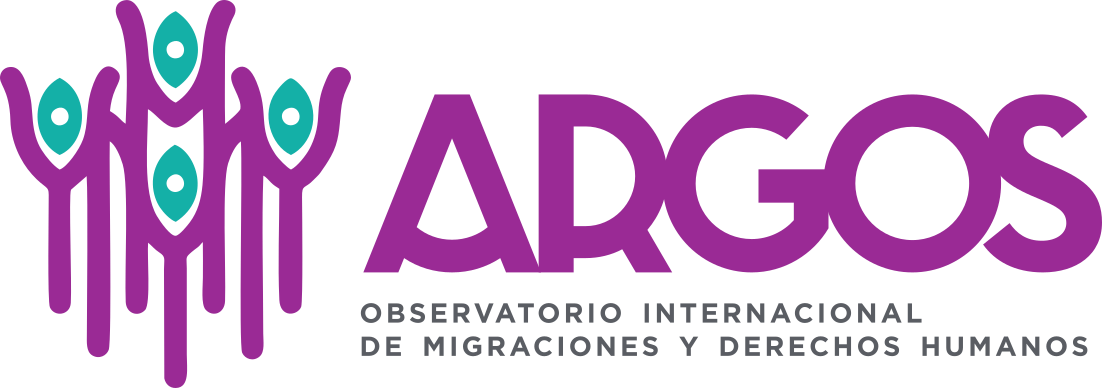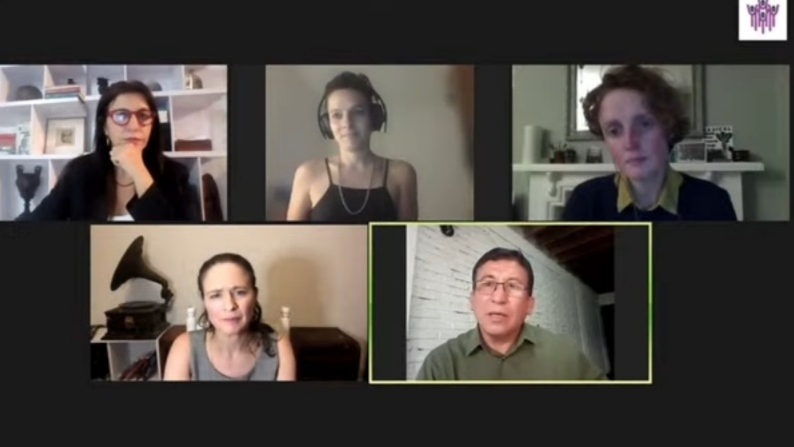Geneva, April 30, 2021 (ARGOS).- The analysis of the book “Asylum for sale: Profit and Protest in the Migration Industry” served as a generator of debate so that this Thursday its editors Siobhán McGuirk and Adrienne Pine, together with Honduran journalist Bartolo Fuentes and Argentinean cultural manager, Florencia Mazzadi, unmask the perverse mechanisms and the emerging industry that enriches itself from the growing global need for human mobility.
ARGOS, the recently created International Observatory on Migration and Human Rights, promoted discussion on this complex and sensitive issue through its first forum “Migration and Asylum: Industry and Business Behind Human Mobility”.
At the beginning of the debate, María Hernández, Director General of ARGOS, contextualised that the book in question compiles a series of articles by activists who denounce, through a very thorough process of research and with reliable data, the industry and the profit motive behind the phenomenon of migration and asylum-seeking.
Siobhán McGuirk, researcher at the University of London-Goldsmiths, explained that the research articles in the book delve into all aspects of the migration industry, including the depressing salaries of the guards working in border detention centres, where migrants are incarcerated as prisoners.
Likewise, Adrienne Pine, researcher at ARGOS and professor at American University, pointed out that in addition to the detention centres and migration control technology at the borders, the industry also includes, and the book exposes, the experts, such as lawyers and other professionals, who are making money from all the regularisation processes that migrants have to go through in the countries of destination or refuge. She said that no one wants to leave their communities to seek refuge in another country and that in asylum court they cannot claim that it is the capitalist system that is the root cause of human mobility.
She stated that the migration industry is marked by a capitalist and imperialist policy, and not by a humanitarian approach to the protection of human rights; in the sense that it is not applied universally and a concrete example is the temporary protected status (TPS), which in the United States favors migrants coming from enemy countries, such as Venezuela, and hinders those from Honduras, who live in a narco-dictatorship, or Haitians, who are going through a real humanitarian crisis.
Florencia Mazzadi, president of the civil association Cine Migrante, spoke about the externalisation of the border and the arbitrariness implicit in the differentiation of categories between migrants and refugees, and those suffered at border checkpoints, where they decide who enters and lives, and who does not. She also added that other companies that profit from the migration industry are arms manufacturers, which supply the criminal gangs that smuggle migrants, and facial recognition technology companies, installed in border control mechanisms.
She praised the poetic conclusion of the book “Asylum for sale: Profit and Protest in the Migration Industry”, that the right of people not to migrate must be guaranteed.
“No one should be forced to move if they don’t want to,” McGuirk added.
The Honduran journalist, Bartolo Fuentes, pointed out that the United States is promoting the branding of migrants from his country as criminals fleeing from justice, and that in the transit countries they have strengthened the military that guard the borders with weapons. In addition, he referred to the low wages and labour exploitation suffered by Central American migrants who manage to cross the US border.
PM Press and the NGO Code Pink: women for peace co-sponsored the forum. The promoted book can be purchased at www.pmpress/asylum.

